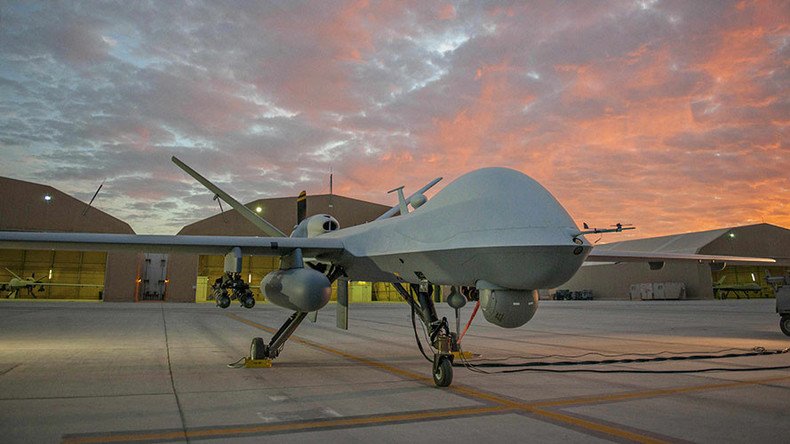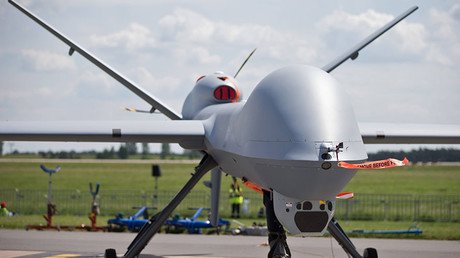Drone warfare’s spread to smaller powers has ‘implications for global peace’ – think tank

Smaller military powers like Iran, Nigeria, and Turkey are following in the footsteps of the US and UK in using drone warfare both within and beyond their own national boundaries, according to the Drone Wars think tank.
Although the majority of research on drones has centered on US, UK, and Israeli operations, other nations are increasingly deploying the technology and its applications.
Drone Wars’ Chris Cole says most of the new users have acquired Unmanned Aerial Vehicles (UAV) from China, while a few, like Turkey, have built their own.
Recent examples include the UAE deploying UAVs in Yemen and Libya, the Nigerian government launching them against the Islamist Boko Haram group, and Iran using drones to attack targets near Aleppo in Syria.
“The last fifteen months has seen a surge in the use of armed drones by a second wave of users,” Cole said in the report.
He added that it is “highly likely that other countries will acquire the technology and begin launching drone strikes over the next 18 months, including European countries.”
“The implications for global peace and security of multiple nations using drones to launch cross border strikes is very serious,” he warned.
Although some believe that proliferation is not an issue, Cole’s “short survey” has already shown that “four of the new wave of users (UAE, Saudi Arabia, Iran, Turkey) have launched cross border strikes on at least six occasions (UAE in Yemen and Libya; Saudi in Yemen; Iran in Syria and Iraq; and Turkey in Iraq) in the past 15 months alone.”
Cole said that the international community must accelerate the “embryonic moves” it is making to control proliferation if “there is to be any realistic chance of stemming the tide of drone strikes.”
The UK, which has enthusiastically invested in drone warfare, is currently looking to expand its fleet. It is planning to spend up to £1 billion on new aircraft and sensor equipment.
The potential cost of expansion came to light when it emerged that the initial expense projections for new UK equipment appeared to contradict those released by the US, which is selling Britain the components.
The disparity was first spotted by the Bureau of Investigative Journalism (TBIJ). UK figures from April projected that the new drones and ground control stations would cost £415 million ($520 million), while more recent US figures put the figure at $1 billion (£790 million).
The MoD insists that the £1 billion price tag is merely what Britain would pay if it chose to buy all of the equipment.













